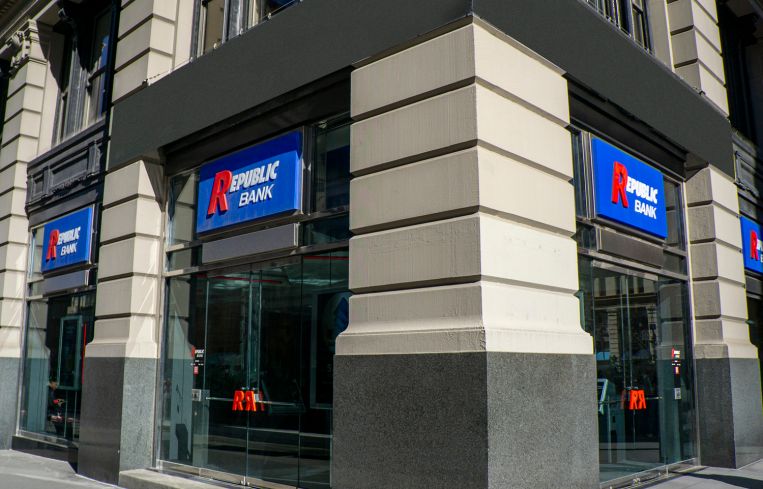CRE Markets Face Limited Impact From Republic First Bank Failure
Philadelphia-based bank's assets acquired by Fulton Financial Corp.
By Andrew Coen April 29, 2024 5:02 pm
reprints
The first bank collapse of 2024 is small enough in size to likely avoid bringing additional pain to an already wounded commercial real estate industry, but underscores sensitivities market participants are facing around future problems.
Philadelphia-based Republic First Bank, which had $5.87 billion of total assets at the close of 2023, was shuttered by Pennsylvania regulators Friday just over a year after a regional banking crisis unfolded following the shutdowns of Silicon Valley Bank (SVB), Signature Bank and First Republic Bank.
“This is a relatively small bank failure with limited implications for the real estate portfolio in the markets where Republic First is active, but what’s telling is that a bank failure of this size would garner as much attention as it has,” said Sam Chandan, director of New York University’s Chen Institute for Global Real Estate Finance. “The market is particularly sensitive to signals of instability in the banking system and that’s reflected in the attention that this relatively small bank failure has received because the market is working to discern whether or not the failure has a bearing on or is relevant to our thinking about broader bank stability.”
Fulton Financial Corp., another Pennsylvania regional bank headquartered in Lancaster, Penn. acquired Republic First’s assets and deposits via an auction overseen by the Federal Deposit Insurance Corp. Curt Myers, chairman and CEO of Fulton, said the transaction would double its presence in the Philadelphia region.
The collapse of Republic Bank marks the sixth largest failed bank since 2010, but far smaller than the collapses of SVB and First Republic, which both had more than $200 billion in assets, and Signature, which had over $100 billion, according to an analysis by S&P Global Ratings. S&P noted that similar to last year’s bank failures, Republic First was undone by unrealized loan losses compounded by elevated interest rates.

Republic First struggled for a number of months leading up to Friday’’s shuttering with around half of its deposits uninsured at the end of last year 2023, the Wall Street Journal reported Friday citing FDIC data. State regulators had prepared to take over Republic First in late 2023 before a deal was struck with investors to shore up the balance sheet that eventually collapsed in March, according to the WSJ story.
As of Dec 31, 2021, Republic First’s CRE loans totaled $780.3 million, or 31 percent of its loan portfolio, according to the company’s latest 10-K filing from late 2022.
While Republic First’s collapse will have a muted impact on the CRE sector, Chandan noted that it does underscore the reality of deposit flights that exist at smaller banks, which will likely lead to increased consolidation that may limit lender options in some markets.
“The markets that I think are most impacted by this consolidation that might result from deposit flight are really smaller secondary and tertiary markets where there are invariably only a small number of lenders that are active in the marketplace,” Chandan said. “This will be sort of a national phenomenon where smaller tertiary markets in particular where your small regional banks and community banks play an outsized role in supporting the commercial real estate sector are the ones that are most at risk of seeing retrenchments in financing during a period of bank consolidation.”
Andrew Coen can be reached at acoen@commercialobserver.com



